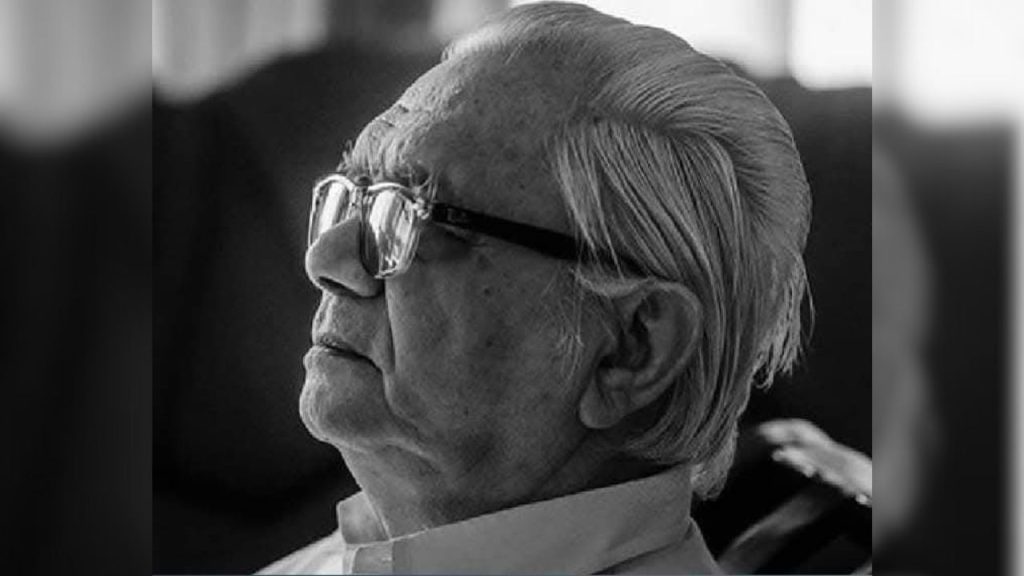A solemn memorial meeting was held on Friday to mourn the passing of Marxist–Leninist communist revolutionary Badruddin Umar, and to urge Bangladesh’s left movement to carry forward his revolutionary path.
Badruddin Umar, a prominent writer, historian, and political thinker, passed away in Dhaka on 7 September at the age of 94.
The memorial took place at 3:30pm at the Abdul Karim Sahitya Bisharad Auditorium of Bangla Academy. The gathering began with a one-minute silence, followed by a rendition of the socialist anthem The Internationale, performed under the direction of Hemanta Das and Mofizur Rahman Laltu.
Presided over by Faizul Hakim – convener of the memorial committee and secretary of the National Liberation Council – the program drew academics, political leaders, cultural figures and activists from across Bangladesh and beyond.
Speakers paid tribute to Umar’s lifelong commitment to Marxist–Leninist ideas and stressed that his political and intellectual legacy must guide the struggle for social revolution in Bangladesh.
Prominent speakers included Professor Sirajul Islam Chowdhury; Professor Akmal Hossain; Fakhrul Islam Alamgir, secretary general of the Bangladesh Nationalist Party (BNP); economist Mahbubullah; Khalekuzzaman, adviser to BSD; Professor Anu Muhammad of the Democratic Rights Committee; Hasibur Rahman, executive editor of Sanskriti magazine; Mahmudur Rahman Manna of Nagorik Oikko; Junayed Saki, chief coordinator of the Ganasonghoti Andolon; and Majibur Rahman of the National Liberation Council (North Bengal). Other speakers and participants ranged from writers and student leaders to veteran left organizers and party officials.
Several messages of condolence were read during the meeting. Kamruzzaman Firoz read remarks from Tipu Biswas, coordinator of the National People’s Front, while Mitu Sarkar, president of the Bangladesh Student Federation, read a condolence message sent from Kolkata’s monthly Onik magazine.
Bursha Biswas of Mukti’r Manch delivered messages from Kolkata academics and journalists, including Professor Anindita Ghoshal and writer-journalist Ark Bhattacharya.
Written tributes also arrived from publications and labour parties in Delhi, Turkey and Pakistan. Documentary filmmaker Soumitra Dastidar, who had intended to speak, was unable to attend due to illness.
Organisers and speakers emphasised that Umar’s political thought and organizing work are indispensable to any genuine advance of Bangladesh’s revolutionary movement.
“To advance the revolutionary movement in Bangladesh, we cannot bypass Badruddin Umar,” one speaker said, urging that the younger generation study Umar’s writings and follow his path toward social revolution.
The memorial was attended by dozens of journalists, party leaders and civil society figures, including Bangladesh Press Institute director general Faruq Wasif; Hanif Mahmud, editor of Bonik Barta; former MP Jahiruddin Swapon; writers Khaliquzzaman Elias and Firoz Ahmed; leaders of left and regional parties; and labor delegates from Dhaka, Narayanganj and Narsingdi.
Poet Hasan Fokri paid tribute by reciting a poem in honor of Umar.
The event closed with calls for renewed unity among left forces, a commitment to carry forward Umar’s intellectual, and political legacy to educate and mobilise the next generation of activists.


